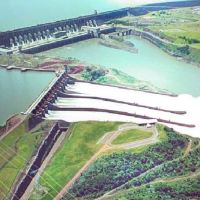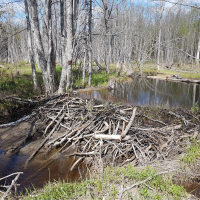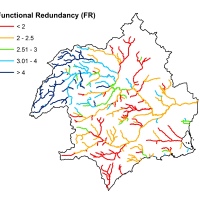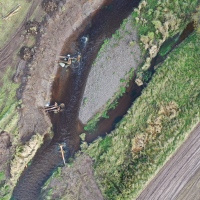What we talk about when we talk about uncertainty
In recent weeks, the south of England – in particular the Somerset Levels and the Thames Valley – have been subject to the worst floods in living memory (see for example). Repeated weather systems moving in from the Atlantic Ocean have brought heavy, sustained rainfall, which have overwhelmed watercourses and flooded surrounding fields, roads, railways and houses.
Regardless of whether these unprecedented floods are directly caused by climate change (the Met Office have confirmed that this has been the wettest UK winter on record), they have caused two fascinating social effects. First, as freshwater breaks its usual bounds and becomes a risk to life and livelihood, a wider group of people become interested in how our water should be managed, and why. Second, we begin to encounter complex ideas of uncertainty in understanding the drivers and causes of such flooding events and their interaction: heavy, sustained rainfall; urbanisation on the flood plain; silted, hydrologically inefficient (but perhaps, biodiverse) river channels. What are the main drivers of these floods? How do they interact? And what measures should we prioritise for future management?
Scientific research could be described as an attempt to reduce our uncertainty about how the world works. However, the idea of uncertainty has the potential to be interpreted as a deficiency in research – ‘not knowing’ or ‘not being sure’ – particularly in debates over future trajectories of climate change. The word ‘uncertainty’ in daily language may carry negative connotations. However, scientists are used to working within margins of error – 95%, 99% – to make confident statements about the world (it could be argued that nothing in life is 100% certain).
Such uncertainties – however small – make it difficult to talk about science to the public and to policy makers: people are (understandably) uncomfortable with dealing with uncertainty when the outcomes may affect their livelihoods and work. Interestingly, a recent report on climate change suggests that the idea of ‘risk’ (as used by the insurance industry) may be more successful in communicating ideas of environmental uncertainty.
The idea of trust is important here too – particularly from the public – trust that scientists and policy makers are making appropriate decisions about the environment. Here, (potentially uncertain) scientific information doesn’t act in a vacuum, instead as part of a complex network of social, cultural and political values held by the public: the blame and responsibility for events such as UK flooding potentially influenced as much by personal experience and media representations of their impact as any direct scientific advice.
Moving beyond a simple (and mostly discredited) ‘deficit model’ of science communication, it seems more important than ever that research on such potentially catastrophic environmental events can engage people to best frame research outcomes (including the uncertainties) to help the public and policy makers understand and make decisions about environmental stressors and their impact on daily life.
Without directly working on the UK floods, the MARS project is designed to study such uncertainties in how freshwaters respond to stress. Environmental uncertainty is difficult to communicate, usually reduced to a set of possible scenarios over how the environment may react and alter to different stresses. In this project, we want to continue to the work of BioFresh to use this blog as a place to ‘get behind the scenes’ of MARS’ research to outline and discuss the issues, uncertainties and potential impacts of our work.
We see blogs as a great conduit through which to talk about these themes. Through a set of features on different stressors, different environments to be studied, interviews with our scientists and the potential implications of our work for water policy and environmental management, we will look to find ways to talk about uncertainty and risk in clear terms, and to encourage feedback and debate.
Some interesting links:
‘Making sense of uncertainty: why uncertainty is part of science’ Sense about Science (2013)
‘Handling uncertainty in science’, Professor Tim Palmer, The Royal Society ‘Science Sees Further’
‘Communicating risk in a soundbite, a guide for scientists’ Science Media Centre
Pidgeon N and Fischer B (2011) ‘The role of social and decision sciences in communicating uncertain climate risks’ Nature Climate Change 1: 35-41















